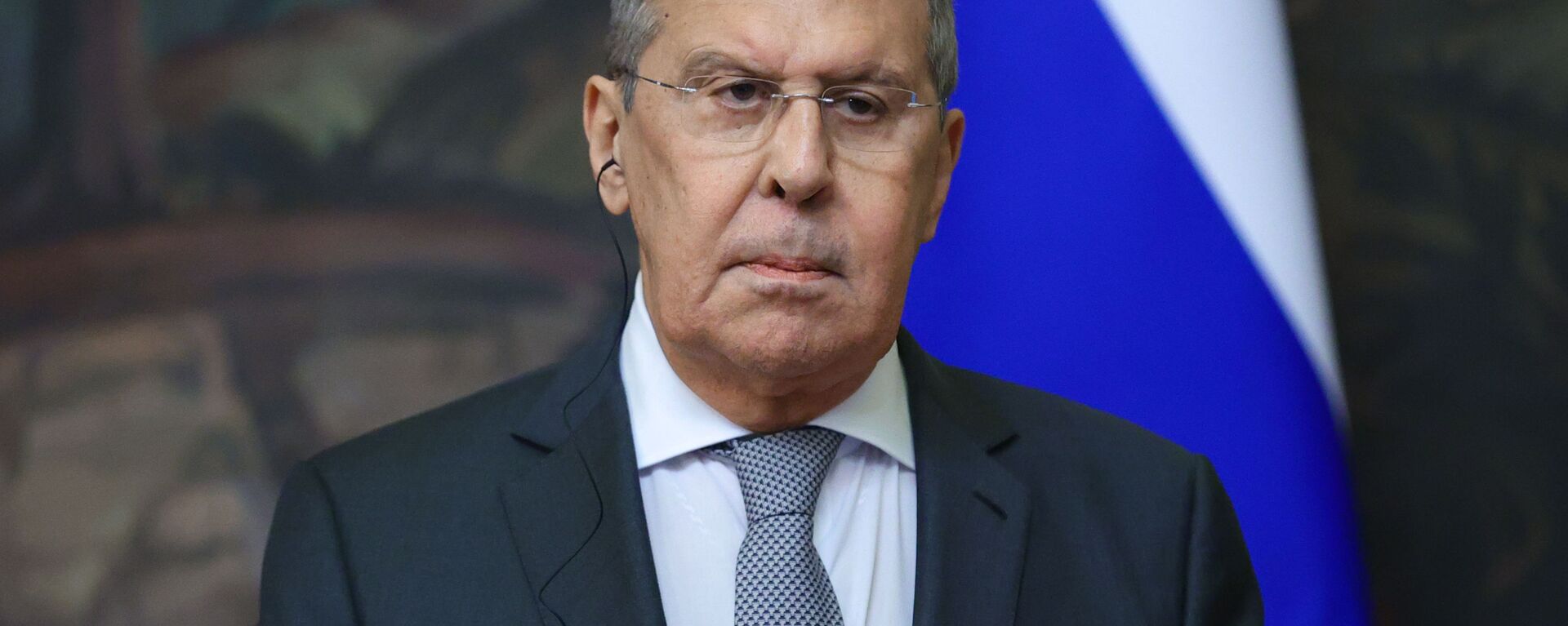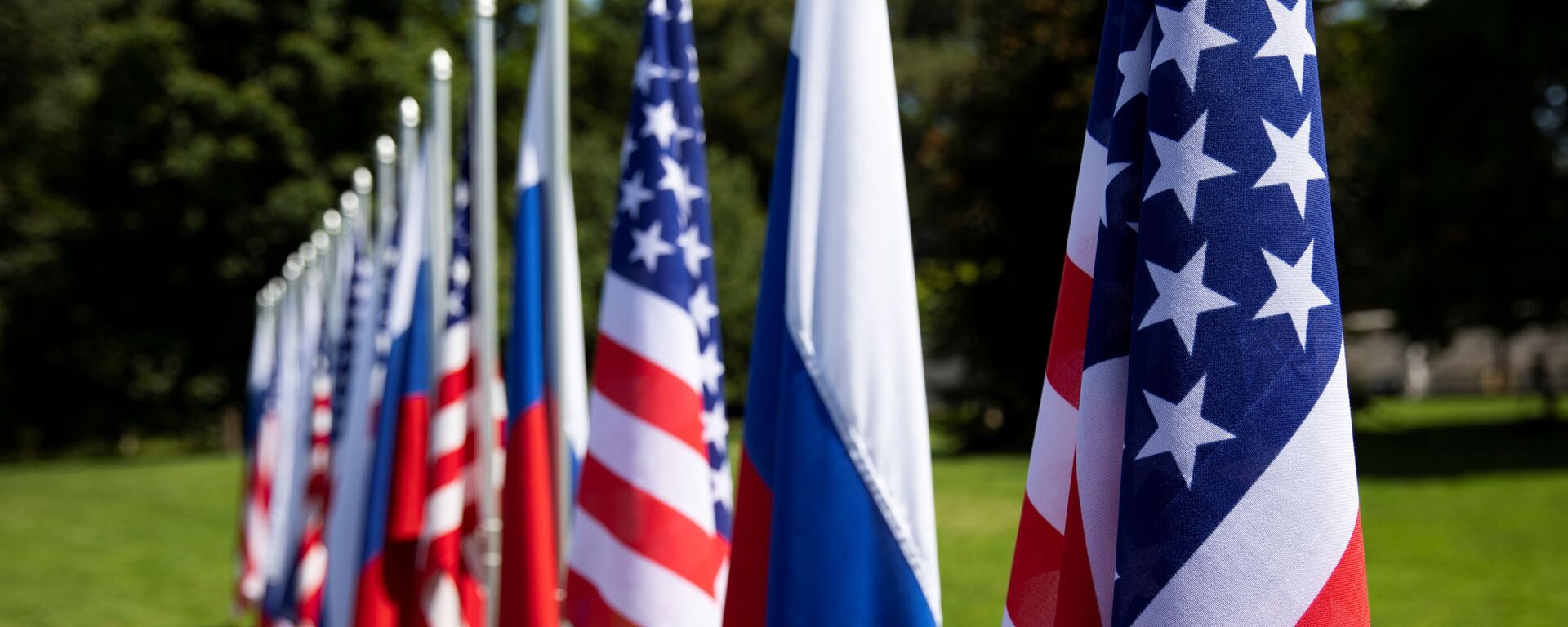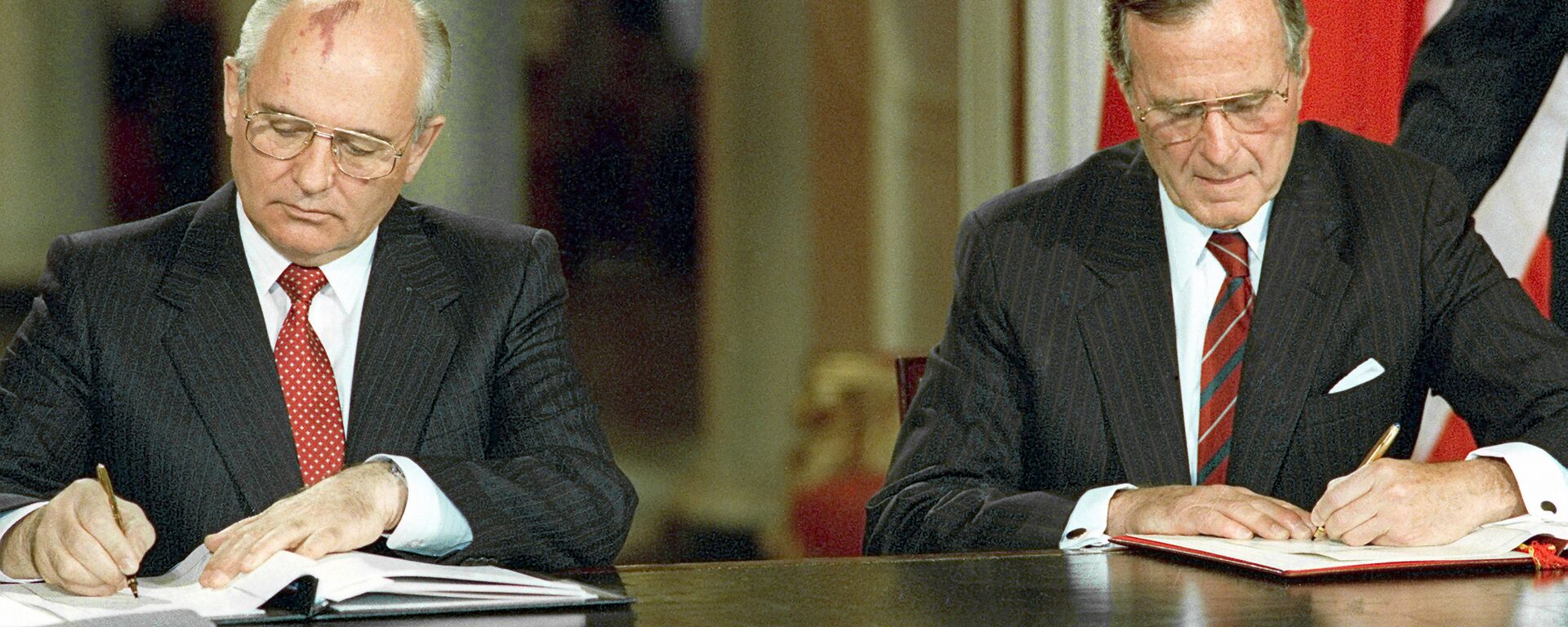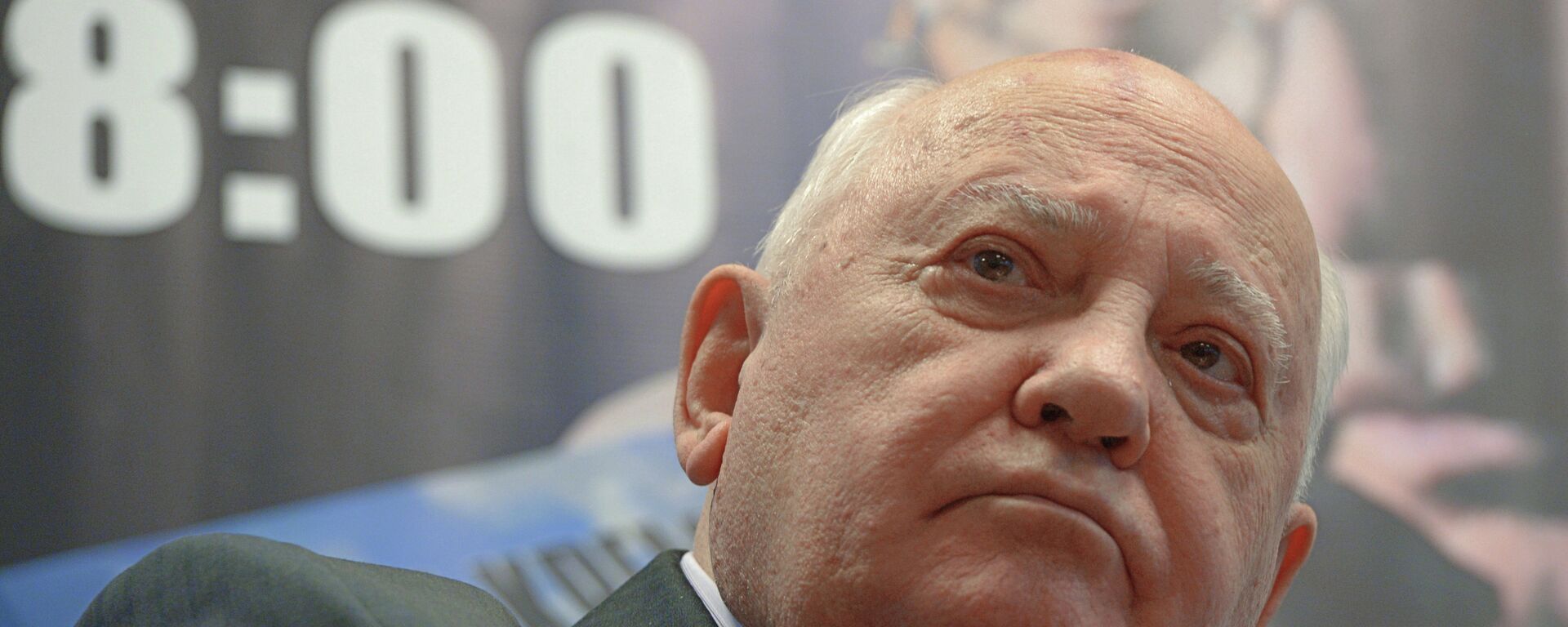Why is NATO in Denial of West's Non-Expansion Vows & Importance of Russia's 'Sphere of Influence'?
18:25 GMT 24.12.2021 (Updated: 15:31 GMT 05.01.2022)
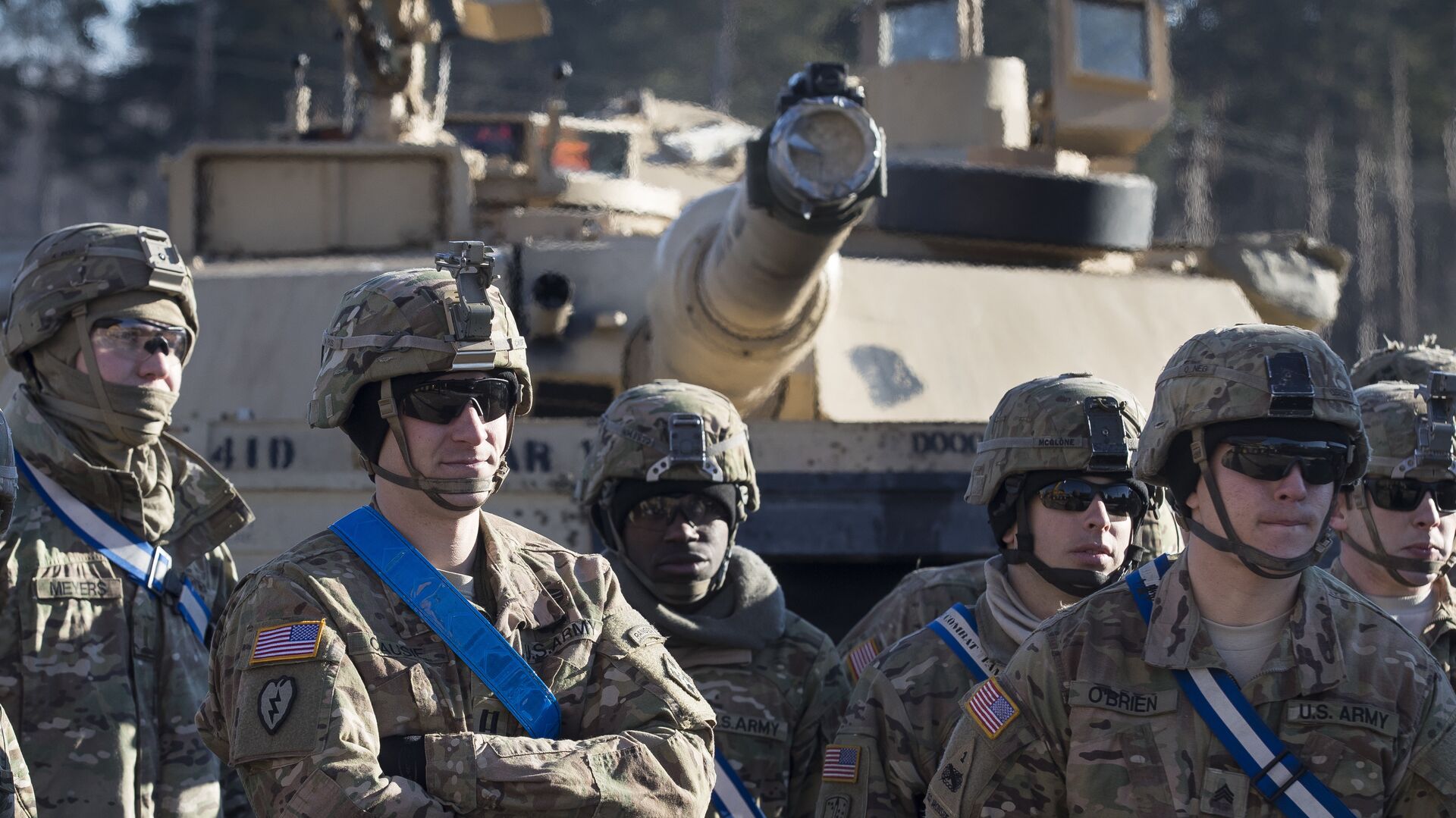
© AP Photo / Mindaugas Kulbis
Subscribe
In response to Russia's security proposal envisaging NATO's non-expansion to the East the alliance's secretary-general Jens Stoltenberg claimed that the military bloc had never vowed not to enlarge, citing its founding documents and legal binding treaties. International observers have discussed Stoltenberg's stance and reasoning.
US Secretary of State Antony Blinken spoke on 23 December with NATO secretary-general Jens Stoltenberg to discuss the alliance's "dual-track approach to Russia" over Ukraine's security, according to the US State Department.
Earlier, on 21 December, the NATO chief said that "the age of spheres of influence is over", and that Ukraine could choose "its own path" in a reference to Moscow's notion that Ukraine's NATO membership constitutes a "red line" for Russia. Stoltenberg echoed Blinken who stated in May 2021 that the United States no longer recognises "spheres of influence" seeing it as an idea "that should have been retired after the Second World War".
Dangerous Security Dilemma
It is hardly surprising that Blinken and Stoltenberg unanimously dismissed Russia's concerns with regard to its sphere of influence, since NATO's agenda is largely dictated by Washington, according to Tiberio Graziani, chairman of Vision & Global Trends at the International Institute for Global Analyses.
"NATO is an alliance in crisis that needs to survive to have an enemy identified in Russia," Graziani highlights. "Stoltenberg essentially reiterates this need and calls allies together by recalling the binding treaties that outline NATO's mission and function. Disregarding Putin's (and Lavrov's) statements expresses Stoltenberg's intention not, at least for the moment, to work to find shared solutions with the Kremlin."
This is a case where two different versions of world order collide and may result in a potential confrontation, warns Jo Jakobsen, political science and international relations professor at the Norwegian University of Science and Technology.
"The situation can probably best be described as a very classic, tragic case in international relations – namely that of a security dilemma," the Norwegian professor explains. "The basic thinking is that if Russia is accommodated on this issue, Moscow would interpret this as weakness, and, rather than becoming satisfied, it would press even harder on this and other issues. On the other hand, showing firmness would, the thinking goes, act as a deterrent, and would ultimately increase the likelihood of Russia backing down."
The problem, however, is that Moscow "would interpret these signals and moves by NATO as offensive ones, which act to decrease further Russia’s security," Jakobsen underscores. "The price we all pay is an increase in tensions – and an increase in the likelihood of military conflict," the academic says.
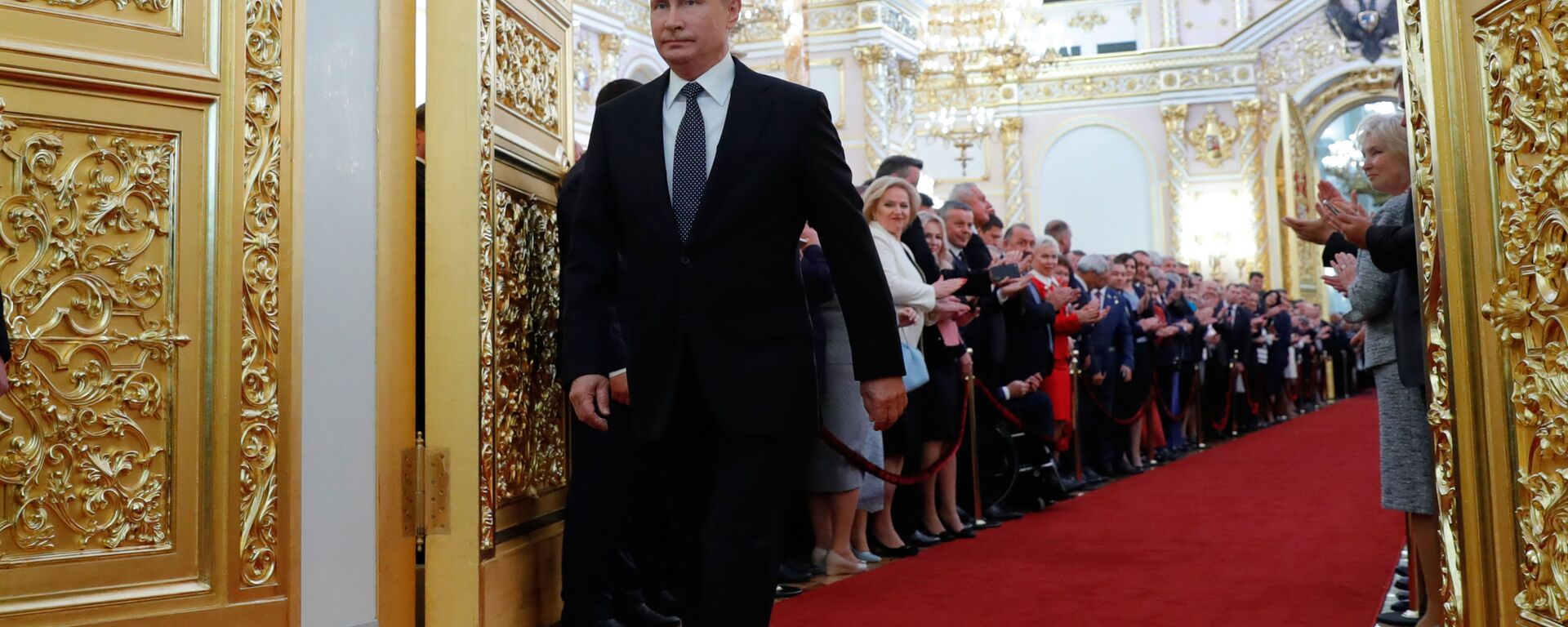
23 December 2021, 19:06 GMT
'There's Room for Compromises on Key Issues for Russia & NATO'
Graziani suggests that a potential way to make NATO less threatening for European balance and international peace is "to find among NATO members those countries who are more sensitive to their own national interests than to Washington's expansionist aims."
"France, for example, has a tradition of independence from NATO that it could reactivate," the scholar says. "Italy too, with its cultural and commercial ties, could be a partner to be activated within the framework of a solution centered on the issues of peace and balance."
In addition to this, major European governments, including Italy, France and Germany, have no appetite for any military action in Ukraine, notes Paolo Raffone, a strategic analyst and director of the CIPI Foundation in Brussels.
Raffone cites in particular Italian Prime Minister Mario Draghi, who earlier this month suggested that "with Putin we must maintain an engagement; that is, we must keep him engaged in a dialogue with the United States." During his 23 December press conference, Vladimir Putin noted that Italy might help to normalise relations between Russia and the European Union and between Russia and NATO during the forthcoming security talks in the beginning of 2022.
Stoltenberg said on 21 December that he intends to call a new meeting of the NATO-Russia Council "as soon as possible" in 2022. The Biden administration also signalled on Thursday that it is ready for security talks with Russia in early January 2022.
However, neither NATO nor the White House has given a substantive answer to the security proposals submitted by Russia last week. Still, this should not be interpreted as if the actual talks would unquestionably fail, highlights Jo Jakobsen. Washington and NATO's recent truculent statements are "a classic negotiation strategy or mechanism," according to him.
"Under the expectation of forthcoming talks about the Ukraine and about the larger security architecture of Europe, it would not make much sense to give away any bargaining advantage beforehand," the Norwegian professor suggests, adding that he believes that "there is room for some limited compromises on key issues."
Stoltenberg's Vision & Historic Facts
Jens Stoltenberg insisted on 23 December that neither the alliance, nor its member states, made any promises to the Soviet leadership concerning NATO's non-expansion. "Former President [of the USSR Mikhail] Gorbachev said the topic of NATO enlargement had not been raised until German reunification," Stoltenberg claimed.
National Security Archive, a US non-profit research institution, on 12 December 2017 published documents which indicated that throughout the process of Germany's unification in 1990-1991, US Secretary of State James Baker and leaders of the UK, France, and Germany indeed assured Gorbachev and other Soviet officials that NATO would not expand eastward.
When it comes to Ukraine, initially, the state's Declaration of state Sovereignty, passed on 16 July 1990, specified that Ukraine has the "intention of becoming a permanently neutral state that does not participate in military blocs and adheres to three nuclear free principles: to accept, to produce and to purchase no nuclear weapons" (Art IX).
Speaking to Sputnik on Thursday, the former President of the USSR Gorbachev noted that the United States grew arrogant after the dissolution of the Soviet Union, declaring itself the winner of the Cold War as it decided to expand NATO.
He lamented the fact that "the Paris Charter, the ideas of collective security, the creation of a Security Council for Europe, which were seriously discussed in 1991, were consigned to oblivion." The former Soviet leader expressed hopes that as a result of the forthcoming Russo-American security talks European countries will feel safe.
On 17 December, Moscow published draft agreements between Russia, the United States and NATO which envisage banning the alliance from expanding eastward and prohibiting the US and Russia from deploying intermediate and shorter-range missiles within striking distance of each other's territory, among other things.

